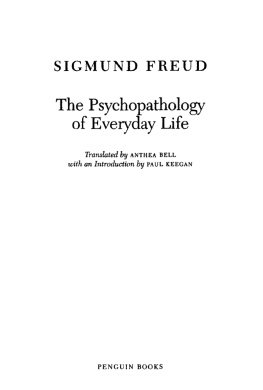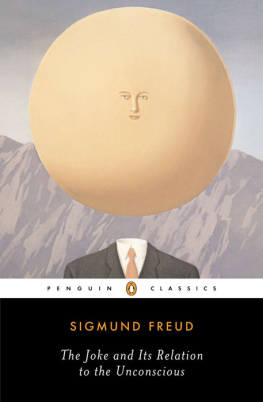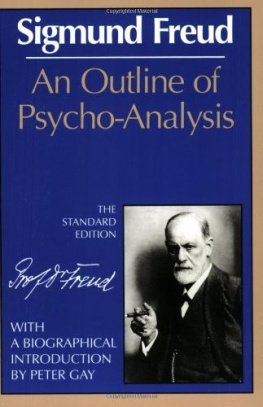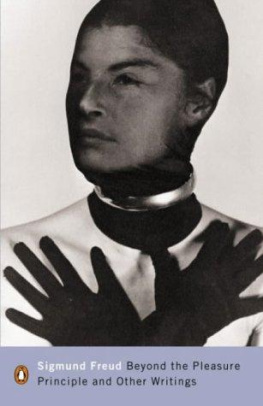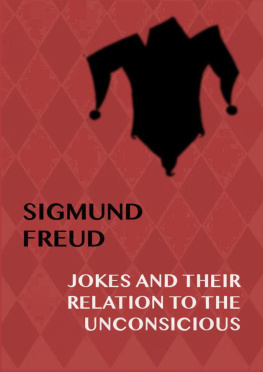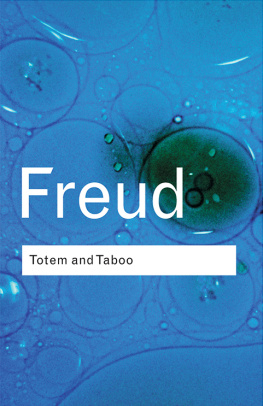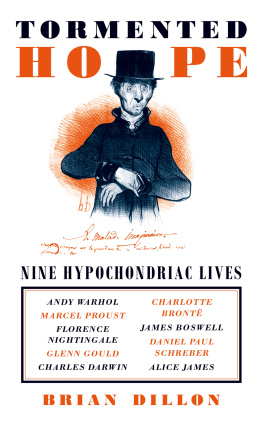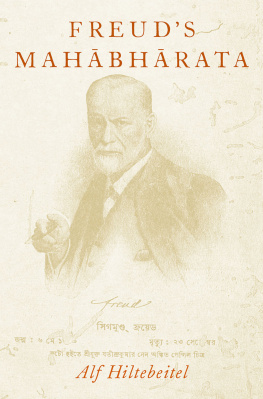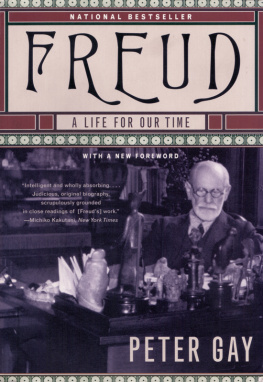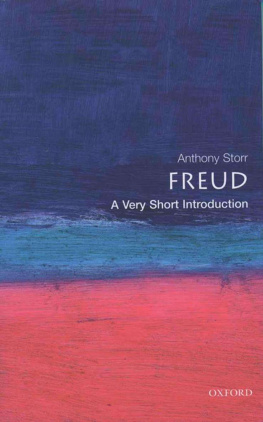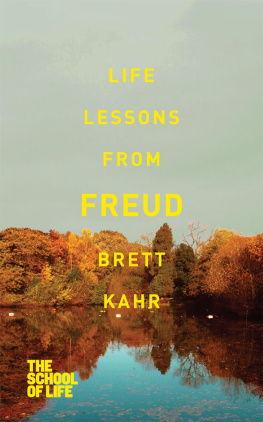PENGUIN BOOKS
THE NEW PENGUIN FREUD
GENERAL EDITOR: ADAM PHILLIPS
THE SCHREBER CASE
Sigmund Freud was born in 1856 in Moravia; between the ages of four and eighty-two his home was in Vienna: in 1938 Hitlers invasion of Austria forced him to seek asylum in London, where he died in the following year. His career began with several years of brilliant work on the anatomy and physiology of the nervous system. He was almost thirty when, after a period of study under Charcot in Paris, his interests first turned to psychology; and after ten years of clinical work in Vienna (at first in collaboration with Breuer, an older colleague) he invented what was to become psychoanalysis. This began simply as a method of treating neurotic patients through talking, but it quickly grew into an accumulation of knowledge about the workings of the mind in general. Freud was thus able to demonstrate the development of the sexual instinct in childhood and, largely on the basis of an examination of dreams, arrived at his fundamental discovery of the unconscious forces that influence our everyday thoughts and actions. Freuds life was uneventful, but his ideas have shaped not only many specialist disciplines, but also the whole intellectual climate of the twentieth century.
Andrew Webber is Senior Lecturer in the Department of German at Cambridge University and a Fellow of Churchill College. He has published widely on German literature of the nineteenth and twentieth centuries, on film and on psychoanalysis. He is the author of The Doppelgnger: Double Visions in German Literature (Oxford, 1996).
Colin MacCabe teaches literature and film at the universities of Exeter and Pittsburgh. His most recent books are Performance and The Eloquence of the Vulgar.
Adam Phillips was formerly Principal Child Psychotherapist at Charing Cross Hospital in London. He is the author of several books on psychoanalysis including On Kissing, Tickling and Being Bored. Darwins Worms, Promises, Promises and Houdinis Box.
Introduction
In 1903 the Leipzig publishing house Oswald Mutze brought out a volume entitled Denkwrdigkeiten eines Nervenkranken [Memoirs of a Nervous Illness] by the judge Daniel Paul Schreber. In his Preface the eminent Saxon lawyer explains his reasons for publication as follows:
I shall try to given an at least partly comprehensible exposition of super-natural matters, knowledge of which has been revealed to me for almost six years. I cannot of course count upon being fully understood because things are dealt with which cannot be expressed in human language; they exceed human understanding. Nor can I maintain that everything is irrefutably certain even for me: much remains only presumption and probability. After all I too am only a human being and therefore limited by the confines of human understanding; but one thing I am certain of, namely that I have come infinitely closer to the truth than human beings who have not received divine revelation.
Schrebers book describes the history of his mental illness, from the inside of that illness. He is well aware of how his behaviour has been understood and categorized by psychiatrists, indeed Schreber includes a number of fascinating appendices which give full details of the medical and legal opinions in this case. Shortly after being appointed to the prestigious position of Senatsprsident in 1893 Schreber, for the second time in his life, found himself in a mental hospital. The first occasion, which followed his defeat in the 1884 elections for the German parliament, was diagnosed as hypochondria and did not involve hallucinations or paranoid fantasies. This second
In the first instance, Schrebers paranoia focuses on Flechsig and the Memoirs suggest clearly that the motive for Flechsigs persecution of Schreber is sexual. After a prolonged period of crisis, however, the persecuting force that wishes to transform Schreber into a woman is identified as God. Furthermore, Gods desire to impregnate Schreber and save the world is located in the future and thus Schreber is able to achieve an extraordinary balance. His former personality is reconstituted entirely and this is evident in the style and form of the Memoirs as well as in the evidence provided by his doctor in the legal appendix. At the same time, as the content of the Memoirs makes plain, he has an extraordinarily developed fantasy, which covers both his past persecution by both God and Flechsig and his future transformation into a woman and Gods bride. While there remain symptoms in his everyday behaviour he is an occasional transvestite and is also subject to fits of wordless bellowing for the most part Schreber balances a totally sane and a totally insane self in a rare psychic settlement. It is this settlement that allows the life of a model citizen to coexist with a completely insane world of upper and lower Gods, of voluptuous nerves and of every daily occurrence necessitating a direct divine intervention.
From the first Schrebers readership was most significantly composed of professional psychiatrists. The publishing house that allowed Schrebers work to find a public was what would nowadays be called a New Age institution, mixing mysticism and medicine. But there do not seem to have been any readers who were tempted to classify Schreber with the great mystics such as Meister Eckhart and Theresa of Lisieux. Schrebers account of his encounters with God bear no relation to texts of genuine religious experience above all because there is no sense of Schreber being involved and transformed by the experiences he undergoes. Indeed it is important to recognize that the text is written in a totally objective discourse a mixture of law and medicine. One of the striking features of Schrebers text is how close it is to Freud; the weighing up of evidence and opinion, the examination of the possible explanations and then the determination to stick to his conclusions, even if he finds himself in a minority of one, make patient and doctor inhabitants of the same discursive universe. At the same time Freuds text (published as Psychoanalytic Remarks on an Autobiographically Described Case of Paranoia (Dementia Paranoides)), objective as it is, always bears witness to a mind transformed by the experiences he relates and the concepts he articulates; Schreber is at the end as he was at the beginning, the self-righteous judge: his constructed subjectivity untouched by the marvels he recounts.
But Schreber immediately found an audience among psychiatrists. One early reviewer recommended the book to all psychiatrists: Never before have the symptoms of paranoia been offered in such detail and so completely because of his high intelligence and logical training, Schrebers presentation must be called perfect by the well-informed physician. This concern with symptoms and their description is of course constitutive of modern psychiatry. The great Kraeplin had not only divided the neuroses from the psychoses but had also split the psychosis into two: dementia praecox and manic depression. Bleuler in 1908 was to substitute the term schizophrenia for dementia praecox, and we currently seem to be living through a renaming of manic depression as bi-polar affective disorder, but the fundamental clinical picture of psychoses was then as it is now.


